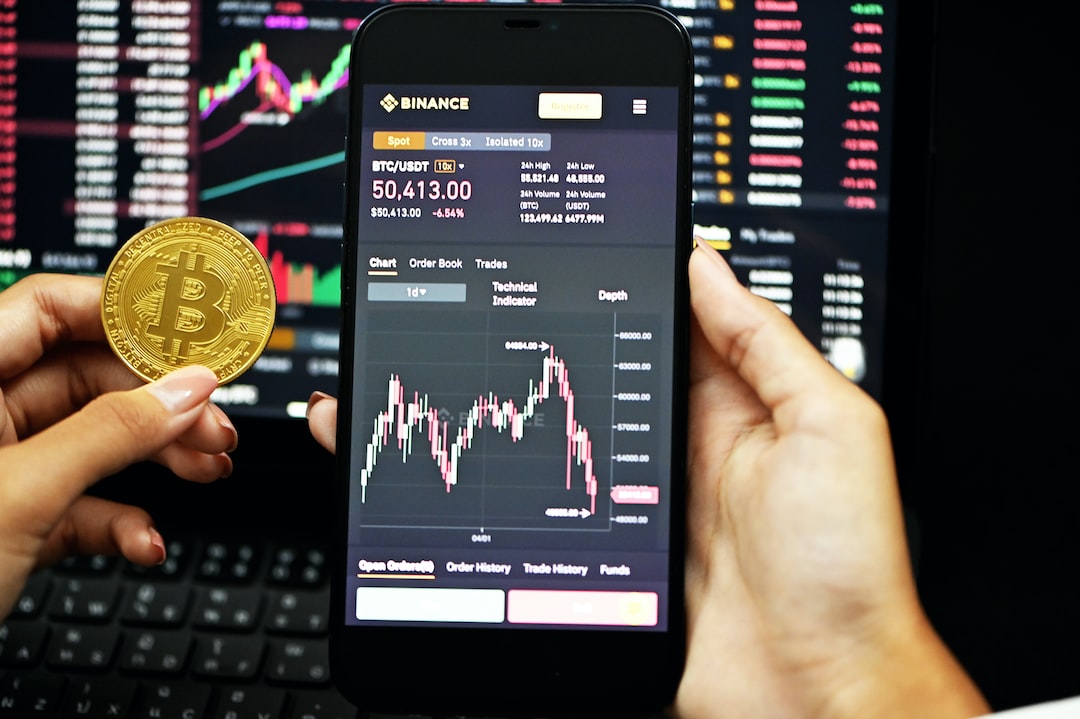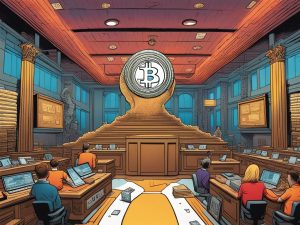Exploring the Use Cases of XRP in the Banking Industry
Welcome to the world of cryptocurrency, where digital assets have revolutionized the financial landscape and disrupted traditional banking systems. In this article, we will explore the various use cases of XRP, one of the leading cryptocurrencies, in the banking industry. Whether you’re an investor, a financial professional, or someone interested in the future of banking, understanding the potential of XRP can be highly beneficial for you.
Firstly, let’s break down what XRP actually is. XRP is a digital asset created by Ripple, a blockchain technology company. Unlike other cryptocurrencies like Bitcoin, XRP is designed for speed and efficiency in cross-border transactions. It aims to bridge the gap between different fiat currencies and enable near-instant international remittances without the need for traditional intermediaries like banks.
Now, let’s dive into the use cases of XRP in the banking industry and how it is transforming financial operations.
1. Real-Time Payments
One of the most significant advantages of XRP is its ability to facilitate real-time payments. Traditional cross-border transactions can be slow, costly, and prone to errors. With XRP, banks can settle transactions within seconds, regardless of the currencies involved. This eliminates the need for corresponding banking relationships and minimizes the risks associated with multiple intermediaries.
By using XRP, banks can provide their customers with faster and more efficient payment services, enhancing the overall customer experience. Whether you need to send money to your family overseas or make a business payment across borders, using XRP can make the process faster, cheaper, and more secure.
2. Liquidity Provision
XRP’s high liquidity has made it an attractive option for banks. Banks often face liquidity issues, especially when it comes to accessing different currencies for international transactions. XRP serves as a bridge currency, allowing banks to facilitate liquidity between different fiat currencies without the need for pre-funding accounts in each currency. This reduces operational costs and eliminates the need for maintaining large amounts of currency reserves.
By utilizing XRP’s liquidity provision, banks can manage their global payment flows more efficiently and reduce the capital requirements associated with cross-border transactions. This opens up opportunities for banks to offer more competitive rates and expand their customer base.
3. Remittance Services
Remittance services, which involve sending money from one country to another, are a vital part of the global banking industry. However, traditional remittances can be slow and expensive, with high fees and conversion rates. XRP provides a cost-effective and efficient solution for remittance services.
By leveraging XRP, banks can offer real-time remittance services at a fraction of the cost compared to traditional methods. This benefits individuals and businesses by reducing transaction fees and improving financial inclusion, particularly for those in regions with limited access to banking services. XRP’s speed and global reach make it an ideal digital asset for remittance purposes.
4. Improved Security and Transparency
XRP offers enhanced security and transparency compared to traditional banking systems. The decentralized nature of blockchain technology eliminates the single point of failure and reduces the risk of fraud and hacking. Additionally, XRP transactions are recorded on a public ledger, providing transparency and traceability.
By using XRP, banks can provide their customers with greater security, ensuring that their funds are protected throughout the transaction process. The transparent nature of XRP transactions also helps in combating money laundering and other illicit activities, making it a reliable option for banks in terms of regulatory compliance.
5. Future Development and Partnerships
XRP’s potential goes beyond its current use cases in the banking industry. Ripple, the creator of XRP, is actively working on expanding its network and forming partnerships with financial institutions worldwide. This continuous effort to collaborate with banks and payment providers strengthens the ecosystem surrounding XRP and paves the way for new and innovative use cases.
As XRP adoption grows, we can expect to see even more opportunities for banks to leverage its benefits in areas like trade finance, supply chain management, and micropayments. The versatility of XRP positions it as a cryptocurrency with immense potential for reshaping the future of banking.
Frequently Asked Questions (FAQs)
Q: Is XRP only beneficial for banks?
A: No, XRP’s benefits extend beyond the banking industry. Individuals and businesses can also leverage its speed, cost-effectiveness, and global reach for various financial transactions.
Q: How does XRP differ from Bitcoin?
A: While both are cryptocurrencies, XRP and Bitcoin serve different purposes. XRP is designed for fast and efficient cross-border transactions, whereas Bitcoin is primarily seen as a store of value and a medium of exchange.
Q: How can I invest in XRP?
A: To invest in XRP, you can open an account on a cryptocurrency exchange that supports XRP trading. From there, you can buy, sell, and hold XRP like any other digital asset.
Q: Is XRP regulated by governments?
A: XRP exists within a regulatory framework, but its decentralized nature sets it apart from traditional banking systems. Governments around the world are still working on defining clear regulations for cryptocurrencies like XRP.
Q: Can I send XRP to anyone, anywhere in the world?
A: Yes, XRP can be sent to anyone with a compatible digital wallet, regardless of their location. Its global reach makes it a convenient option for international transactions.
In conclusion, XRP has established itself as a promising digital asset with numerous use cases in the banking industry. Its speed, cost-effectiveness, liquidity provision, and enhanced security make it an attractive option for banks worldwide. As the cryptocurrency market continues to evolve, we can expect XRP to play a pivotal role in reshaping the future of banking operations.





 By
By
 By
By
 By
By

 By
By